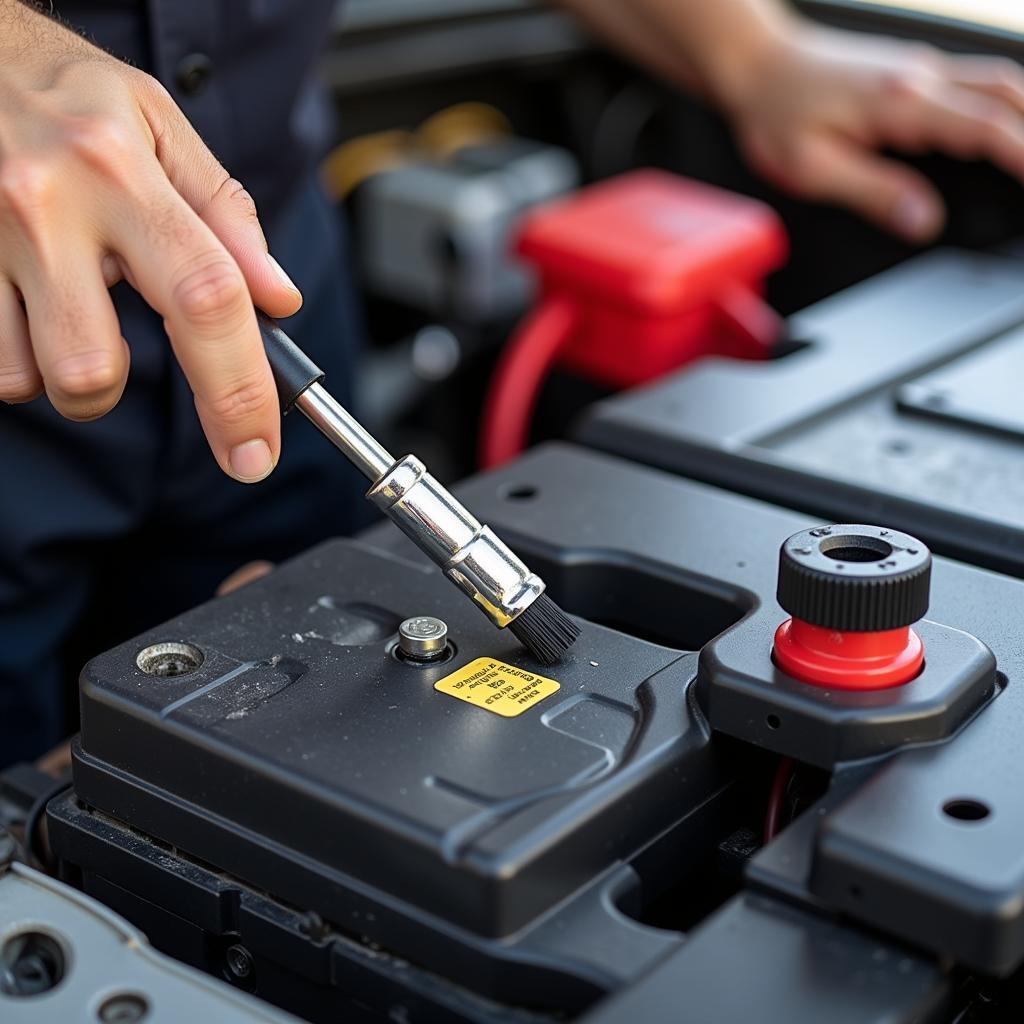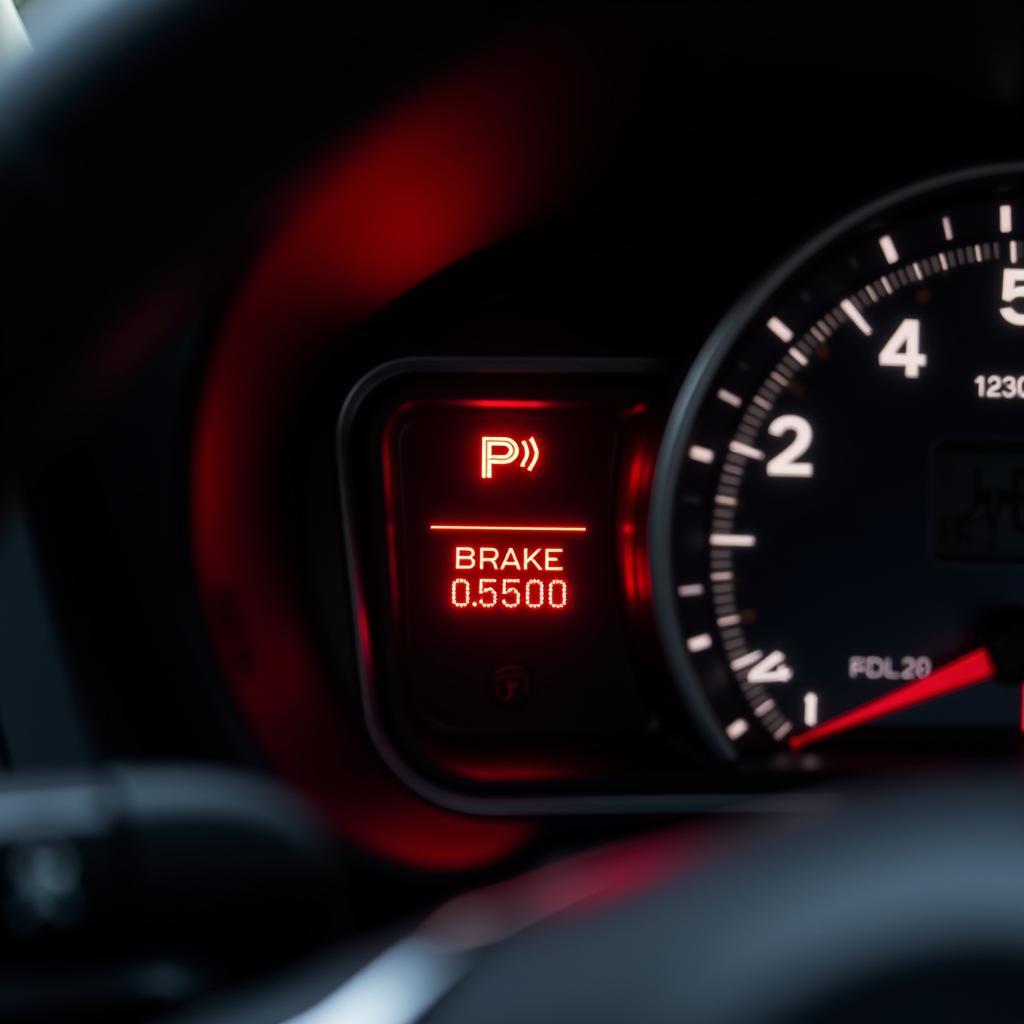A brand new battery keeps dying? This frustrating issue can leave you stranded and wondering what’s wrong. Don’t worry, we’ll explore common causes and solutions for a new car battery that keeps draining, covering everything from parasitic draws to faulty alternators and even remote diagnostic options.
Why is My New Car Battery Dying?
Several culprits can cause a new car battery to drain prematurely. Understanding the potential issues can help you pinpoint the problem and get back on the road quickly. Some common reasons include a faulty alternator, parasitic draw, corroded or loose battery terminals, extreme temperatures, leaving lights or accessories on, and even a defective new battery. Let’s delve deeper into each of these potential issues.
The Alternator: The Battery’s Charging System
The alternator is responsible for recharging the battery while the engine is running. A faulty alternator won’t charge the battery properly, leading to a dead battery even if it’s brand new. Signs of a bad alternator include dimming headlights, flickering interior lights, and strange noises from the engine compartment.
Parasitic Draw: The Silent Battery Killer
A parasitic draw occurs when electrical components continue to draw power even when the car is off. This can drain your battery overnight or over a few days. Common culprits include interior lights, glove box lights, faulty door switches, and aftermarket accessories like radios or alarms.
Corroded or Loose Battery Terminals: A Simple Fix
Corroded or loose battery terminals can prevent the battery from properly charging and discharging. Check your terminals for any buildup or looseness. Cleaning them with a wire brush and baking soda solution can often solve this issue.
Extreme Temperatures: Impact on Battery Performance
Both extreme heat and extreme cold can significantly impact battery performance. Heat can cause the battery fluid to evaporate, while cold can slow down chemical reactions within the battery, leading to reduced capacity.
Accidental Drain: Lights and Accessories
Leaving your headlights, interior lights, or other accessories on can quickly drain your battery. Always double-check that everything is turned off before leaving your vehicle.
Defective New Battery: A Rare Possibility
While less common, it’s possible that the new battery itself is defective. If you’ve ruled out all other possibilities, have the battery tested at a reputable auto parts store.
Troubleshooting a Dying Brand New Car Battery
Now that we’ve identified the potential causes, let’s discuss how to troubleshoot the issue.
- Check the alternator: Use a multimeter to test the alternator’s voltage output. A healthy alternator should produce around 14 volts.
- Identify parasitic draws: Use a multimeter to measure the current draw with the car off. A draw above 50 milliamps is usually indicative of a parasitic draw.
- Inspect the battery terminals: Check for corrosion or looseness. Clean and tighten the terminals as needed.
- Consider the temperature: Extreme temperatures can affect battery performance. If you live in a particularly hot or cold climate, you may need a battery designed for those conditions.
- Review your habits: Make sure you’re not accidentally leaving lights or accessories on.
- Test the battery: Have the battery tested to rule out a defect.
Remote Diagnostics and Software Solutions
In the modern automotive landscape, remote diagnostics and software solutions are increasingly useful for troubleshooting complex car issues, including battery problems. Specialized software can access vehicle data remotely, identifying potential issues related to the battery management system, alternator control, and even parasitic draws. This advanced diagnostic approach can save time and potentially identify issues that traditional methods might miss.
Preventing Future Battery Problems
Preventing future battery problems is often easier than dealing with a dead battery. Here are some preventative measures:
- Regularly clean your battery terminals: This will prevent corrosion and ensure a good connection.
- Limit short trips: Short trips don’t give the alternator enough time to fully recharge the battery.
- Turn off all accessories before exiting the vehicle: This will prevent accidental drains.
- Have your battery tested periodically: This will help you identify potential problems before they become major issues.
- Consider a battery maintainer: If you don’t drive your car frequently, a battery maintainer can help keep the battery charged.
“Regular preventative maintenance, including battery checks and terminal cleaning, can significantly extend the life of your car battery and prevent unexpected breakdowns,” says John Miller, Senior Automotive Electrical Engineer at Advanced Auto Solutions.
 Car Battery Maintenance – Terminal Cleaning
Car Battery Maintenance – Terminal Cleaning
Conclusion
A brand new battery keeps dying can be a frustrating experience, but by understanding the potential causes and implementing the troubleshooting steps outlined above, you can often identify and fix the problem yourself. Remember to consider remote diagnostics and software solutions for a more comprehensive approach to troubleshooting. Proactive maintenance can help prevent future battery problems, keeping your car running smoothly for years to come.
FAQ
- How long should a brand new car battery last? Typically, a new car battery should last between 3 and 5 years.
- Can a bad alternator drain a new battery? Yes, a faulty alternator will not recharge the battery properly, leading to a dead battery.
- What is a parasitic draw? A parasitic draw is when electrical components continue to draw power even when the car is off.
- How can I test for a parasitic draw? You can use a multimeter to measure the current draw with the car off.
- How do I clean corroded battery terminals? Use a wire brush and a baking soda solution to clean corroded terminals.
- Can extreme temperatures affect battery life? Yes, both extreme heat and extreme cold can significantly impact battery performance.
- What are the signs of a bad alternator? Dimming headlights, flickering interior lights, and strange noises from the engine compartment can indicate a bad alternator.

